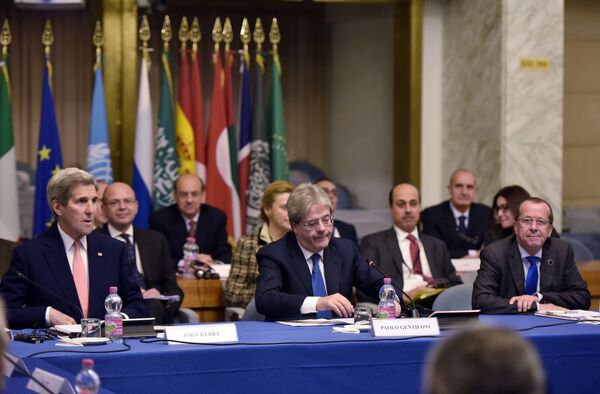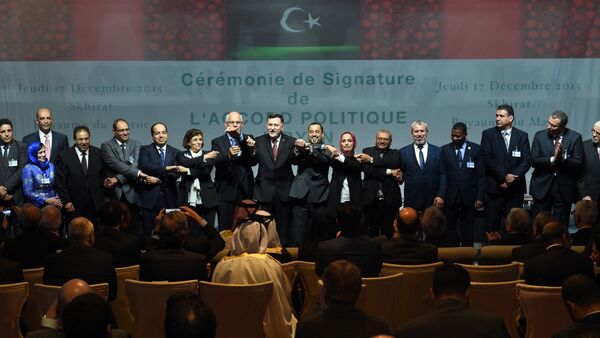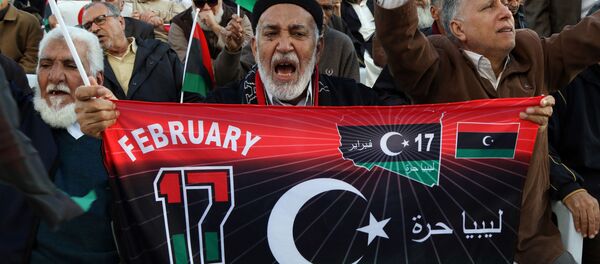Since 2014 Libya has been split between two rival parliaments after a group of rebels known as the Libya Dawn took control of the capital Tripoli and forced the existing government into exile.
Both governments are backed by various armed militia groups, while the country has been embroiled in a five-year long civil war following the 2011 Western intervention that resulted in the toppling of former leader Muammar Gadaffi.

As a result of the instability, a number of rebel groups, including Daesh, have been able to carve out areas of control in Libya.
The sense of lawlessness is widely regarded to be a driving factor behind human trafficking and the large number of refugees leaving the North African country en route to Europe.
It was hoped the warring governments were close to coming to a power sharing agreement, with Libya’s Presidential Council last week announcing a unity deal.
"Only united #Libya government supported by all citizens can end divisions and defeat terrorism" @FedericaMog 3/4 https://t.co/MGXuafSfIZ
— EU External Action (@eu_eeas) January 19, 2016
While the plan attracted some support from both sides, many key members in the Tripoli and Tobruk refused to sign the UN agreement, with critics arguing that the plan didn’t accurately represent the various groups in Libya.
In rejecting the deal, Tobruk parliamentarians on Monday said the proposed 32-member cabinet included too many positions, and have called on moderators to submit alternative proposals within the next 10 days.
A Setback in the Peace Plan
The rejection of the UN deal marks a significant setback in efforts aimed at creating a stable, unified government that can defeat the increasing threat of Daesh.
The Libyan Presidential Council – the UN-endorsed group tasked with trying to bring the country’s warring factions together – are now expected to address the concerns of the Tobruk parliament and deliver another proposal in the hope of forming a unity government.
However those involved in the peace talks have warned that further delays to an agreement will only give rebel groups more time to gain more areas of control in Libya.




